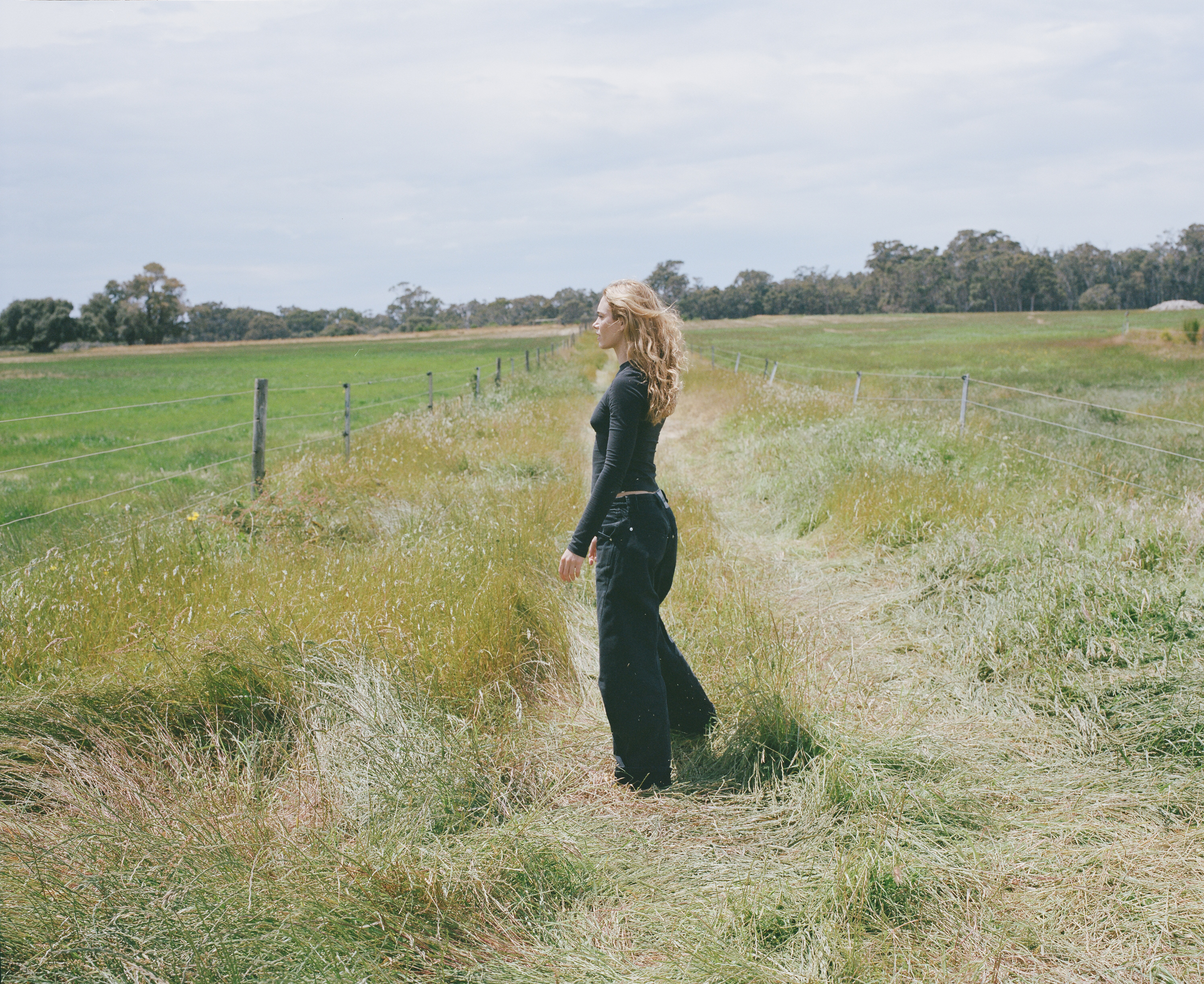Giorgia Mack – Art Collector
For Giorgia Mack, a feeling she had in her childhood on her family’s farm in the Margaret River region of Western Australia is one she wants to share with the world: a feeling of being enveloped by nature and overcome by its beauty. “I spent a lot of my childhood traversing the farm, getting lost, exploring, playing in the dam and mud and riding horses,” she says. An adult life spent in the arts following a fine arts degree with honours majoring in sculpture, performance and installation and now completing a Masters in Business (Arts and Cultural Management), led to her decision to work with her parents to transform the family farm she roamed freely as a child into a cultural institution, now named The Farm Margaret River. “We wanted to share this pocket of safety, land and connection with others,” she says.
Run by Mack and her parents, founders Helen Taylor Mack and Darryl Mack, and their small team, The Farm Margaret River invites artists from around the globe to apply for an annual eight-week funded residency. This year there were 434 entries from artists across 62 countries – “a substantial increase that speaks to the collective covet of artists seeking places to connect to the land,” says Mack. “Which in today's world is diminishing as people are living behind screens and in cities.” In her role as creative director at The Farm, Mack fosters this connection with the land, acting as a conduit from the artist’s idea to the artwork’s realisation.
The Farm stretches over 74 acres on Wardandi country, and Wardandi matriarchs Mitchella Hutchins and Vivian Brockman-Webb are ongoing collaborators in the work that takes place there. Mack explains that these women have offered the wisdom that the land The Farm occupies exudes a feminine aura, with some peppermint trees considered birthing places, and the spring at the heart of the property – likened to the farm's navel – emanating an outward life-force.
Previous artists’ work adorns The Farm, including inaugural works Waljin Beela by Chris Booth, and We Must Catch Up by Perdita Phillips, along with Land Art on Paper by Nathalie Hartog-Gautier, Hidden and Unassuming by Holly O’Meehan, Climate Chamber by Harrison Rieke, Food Forest & Burned Tracks by Cora Jongsma and Submerged Rhythm by Jenni Vacca; though, artists are not required to leave anything behind. The work can be ephemeral, says Mack, and disintegrate over time. She adds that the most significant contribution an artist can make is their time spent connecting to place and community. “It’s about bringing the community along the journey in some way; making them see this region in a new light or bringing light to a new phenomenon.”
Danae Stratou, the 2023 recipient who is over from Greece, took this approach with her work Water Traces, working with all the members of the community to inform her work – “including my parents,” says Mack. Helen and Darryl play a pivotal role in the two-month process, tending to immediate needs and sharing their wisdom and connections to help bring each project to life. Darryl’s interest in water divining led Stratous’ practice in a trajectory of exploring the water beneath the surface, which not only speaks to the Wardandi community as they expose what's under the soil, but engages in the wider national conversation about the climate emergency. “It’s a collaboration,” says Mack. “This large-scale, major site-responsive work by Danae has required an extra level of detail and attention to be realised – including farmers who have physically mowed through the landscape to expose the tracks.”
Mack imagines the future of The Farm Margaret River through these sorts of collaborations—through participatory art and philanthropy. These initiatives enable new and dynamic relationships between artists, their audiences and supporters. Ideally, she says, large scale, progressive and avant-garde forms, that are inimitable and shocking and produce profound impacts that go beyond the visual, providing an emotive experience felt through the body by igniting all the senses—just like her childhood experience.
Melbourne based, Lutruwita/Tasmanian contemporary artist Cassie Sullivan is the 2024 recipient of the residency, receiving $7,500, plus flights, accommodation and access to light-filled working studios in converted farm sheds.
This article was originally published in the 2024 annual ‘50 Things Collectors Should Know’ issue of Art Collector. Portraits photographed by Olivia Senior and artwork photographed by Olive Lipscombe and Martine Perret.

